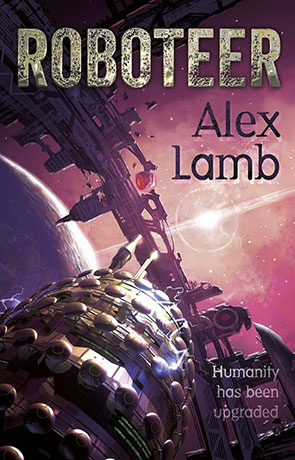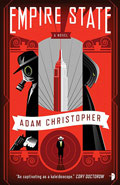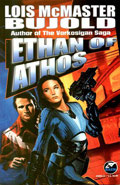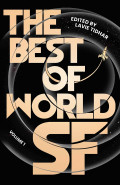Roboteer
By Alex Lamb
Alex Lamb's Roboteer paints a picture of a future, that in the political climate of today, feels far too possible.
In this book, a war rages between two sides of humanity, two different and opposing ideologies and lifestyles. One side, combining genetic and induced mutation with advanced technology, just to survive and grow. The other dealing with over population, presumably low employment and the idea that someone is better off than they are.
We see how people have manipulated propaganda about the other side, merely to increase their own personal influence. Politics and religion are just tools in their hands, flags to wave to unite to a cause, with little evidence personal belief or morality.
As all of the religions have been loosely brought together, it becomes clear that it is not belief that unites them, more political expediency. The actual tenants of the official religion have been manipulated to allow them not to be against any of the existing faiths and becomes a self fulfilling cycle that the religion itself is the basis of the religion.
Accusations of "genetic fascism" are put forward by the Earthers as a criticism of the Colonials, but generally this is a trait we see in the characters who make this accusation loudest.
Most of the perspective of the book is from the Colonial point of view and we have more sympathy for their cause, it is only when we stop and think that we see the cracks in their own society. Through their perspective we see the downsides of deliberate mutation for specific skills, without environmental factors to even out selection, behaviour traits of obsessive compulsive disorders and autism become common.
We also get a glimpse of the fact the ability to live in a "virtual reality" gives some characters the choice of whether to opt out of "live" social interaction, creating a two tier society and creates as situation where the Captain of a ship is surprised by the genuine grief for someone who is "only a roboteer". This is reminiscent of John Scalzi’s Locked In but with a different plot reason for the condition. For some people the roboteer is “other” and possibly even sub-human.
Overall the book warns of the danger of the "end justifying the means" with the threat that the morality of any given situation, and the ability to enforce this, may not sit in human hands. On both sides we see people willing to do anything for a cause, but also individuals whose actions progress a cause that they deep down disagree with and how the results of this do not turn out well. This is shown on the personal scale, when an individual betrays his friends for a bigger cause and they and their cause suffer for it, and on the species level when humanity might be judged for its actions by an external set of values.
It ultimately concludes that without the ability and willingness to adapt to our environments, we can only take from the resources around us. If we do not aspire to create, we can only destroy. A chilling prediction perhaps.
This book is much more than an entertaining tale of spaceships, warfare, technology and an occasional alien presence, although it has all of those. It is a book designed to really make you think about the future of humanity and where our choices might take us, which is in the best tradition of Science Fiction writing.
Written on 16th December 2015 by Karen Fishwick .












